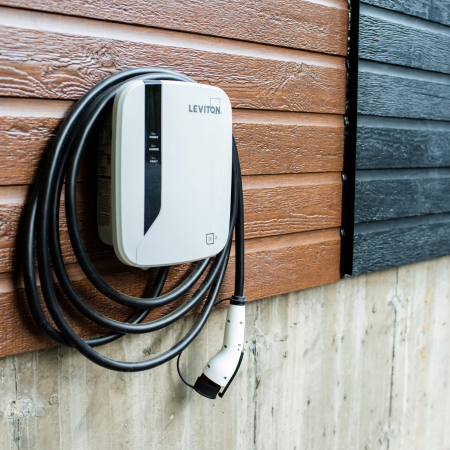Electric Road Cars are becoming increasingly popular in the UK as more and more vehicle owners are making the investment and transitioning towards electric vehicles ready for the 2030 ban on new petrol/diesel cars. The influx of electric cars on the roads today brings a far greater demand for home EV chargers.
Electric cars are less conventional than typical engine cars as they do not need petrol but instead rely on a compatible EV charger to keep the car's battery charged and ready for use. Electric cars are already proving to be an excellent method to help to reduce greenhouse gasses and help offset our carbon footprint.
The energy experts at City Plumbing have compiled a step-by-step guide covering all the basics of choosing the correct EV charger for your customers while providing a safe and professional installation.
How to Choose an EV Charger
When it comes to finding a suitable EV charger for your client or customer, there are a few requirements to consider before making your choice.
- First, you will need to ensure that the EV charger has the same type of connection port as your customer's electric car.
- If your client uses their Electric Car daily for long journeys, it might be worth recommending a charger with a higher kilowatt (kW) output because their electric car will charge faster than a lower kilowatt (kW) charger - which is ideal if they are always on the move.
- Some electric car chargers come with additional features, such as built-in Wi-Fi and the ability to set custom schedules for charging electric cars more effectively. Be mindful because EV Chargers can cost anywhere from £500 up to £1500, depending on the power output and any extra features your customer may require.


Where Should EV Chargers be Installed
Before installing an EV electric charger for your customer, here are a few things you should remember:
- Permission: It is vital to check with your client that they have permission from their landlord if they live in a rented property.
- Electrical System: You will need to also ensure that the property's electrical system will be able to support an electric car charger, as some homes may need to be upgraded, especially if it's a new build.
- Location: Depending one if you are installing a tethered or untethered charger, it won't really matter what side the charging point is installed on. If the charger is installed in a garage, you must ensure the area is well-ventilated.
What Permits are Needed to Install an EV Charger?
Whether you need a permit to install an EV charger will depend from one council to another; however, in most cases you would need a full electrical permit while others only require one for work that exceeds a specific wattage.
It is always best to check the government website for the area you will be making an installation.
How to Install an EV charger
Installing an EV charger seems like a daunting task, but in terms of electrical jobs, it’s relatively quite simple. You can provide a safe, professional installation by following these easy steps.
- When you arrive on-site, before you get started, the first thing you must do is carry out a quick risk assessment.
- Take the customer through the installation process. Show them what you will be doing and allow them to agree on where to install the charger.
- Inform the customer you will need to turn off the electricity supply in the property so you can wire the charger to the mains.
- Once the electricity supply is off, you can now get to work. Start by drilling and mapping out where the cables will run to the fuse box.
- Mount the cables as you wire them to the fuse box. Provide trunking, as this will keep the wiring nice and tidy and secure to the wall.
- Once you have finished wiring up, you can give the charger a check over to make sure everything is working correctly.
- Once everything has been done, show the customer how to use their new EV charger and run them through all the extra features the charger may come with.
Full instructions and guidance for specific EV chargers can be found in the provided instruction manual, or on the manufacturers’ website.

At City Plumbing, we stock a vast range of EV chargers in-stock and ready for your next installation project.
City Plumbing is an installer’s secret weapon for navigating the latest and greatest in renewable technology installation. If you require more expert advice then get in touch with our dedicated energy-efficiency experts, or contact your local City Plumbing branch.



